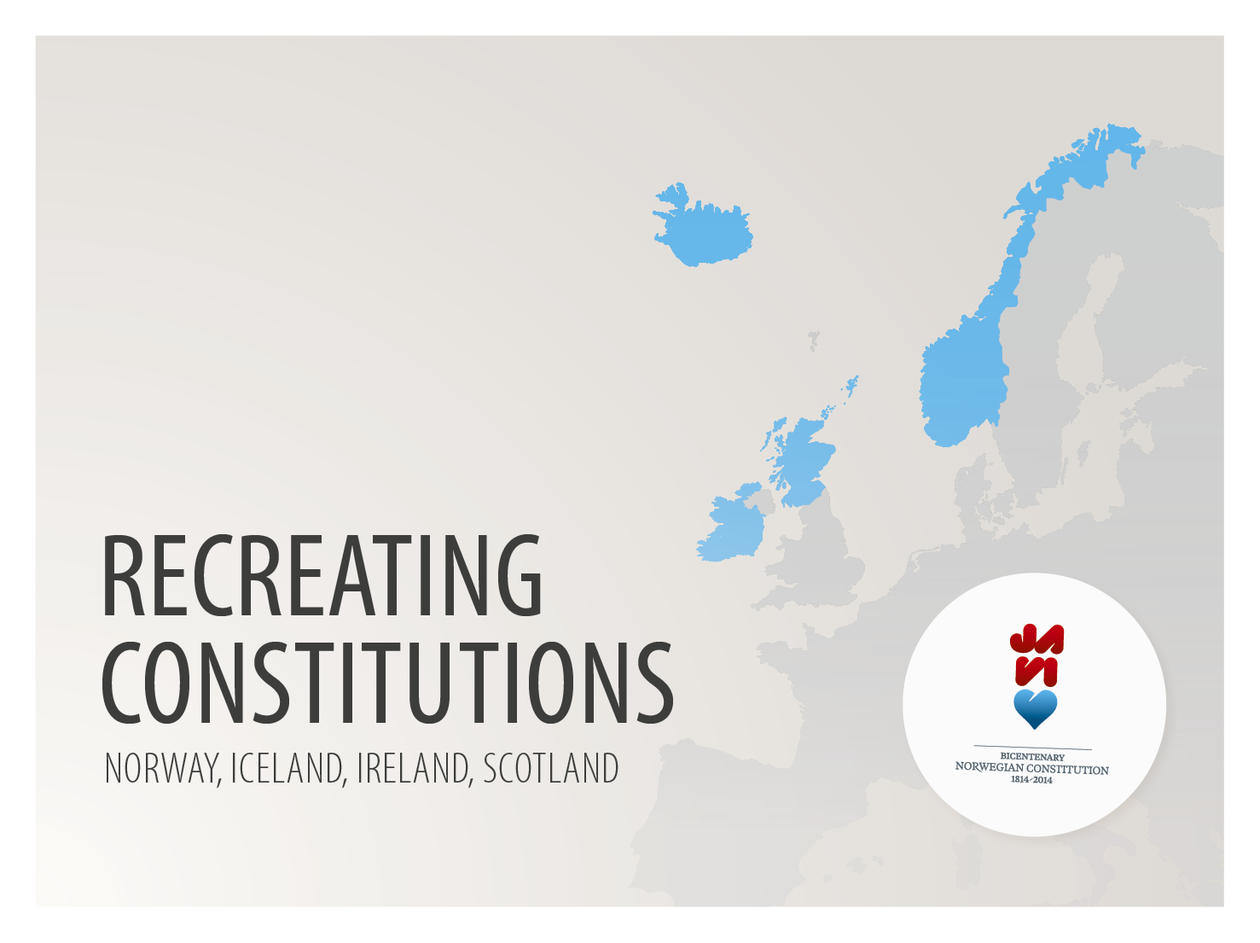Conference on constitutional processes
The conference Recreating constitutions addressed constitutional changes in Norway, Iceland, Ireland and Scotland.

Main content
The conference was opened by a key note address by Xenophon Contiades, Director of the Centre for European Constitutional Law. Contiades is the author of Constitutions in the Global Financial Crisis. A Comparative Analysis. He talked about what the context means for the process towards changing the constitutions. The second key note address was by Zachary Elkins, Director of Comparative Constitutions Project. Elkins introduced the Constitute Project which has collected most of the constitutions of the world and made the content searchable by topic.
In two panel debates, parliamentarians and researchers from Norway, Iceland, Ireland and Scotland discussed the need for new constitutions, the major issues at stake and the process towards the constitutional changes in each country. The constitutional processes in the four countries discussed are very different.
The constitutional review process in Norway has been a quiet and expert-dominated process. A committee appointed by the parliament (Stortinget) has suggested that human rights be put in a separate chapter in the constitution. The parliament is expected to deliberate and vote on the suggestions in the run-up to the 200th anniversary for the constitution in May 2014.
In the wake of the financial crisis in Iceland in 2008, work started on changing the constitution. The constitutional review process has had considerable public support. A referendum in 2012 showed great support for the suggested changes to the constitution. The current parliament in Iceland is however divided and the process appears to have been halted.
In the elections to the Scottish Parliament in 2011, the Scottish National Party (SNP) won the majority of seats. Scottish independence is high on the SNP’s agenda. A referendum on independence from United Kingdom is scheduled for September 2014. Extensive constitutional changes are needed if independence is the outcome of the referendum.
In Ireland, amendments to the constitution are made if an amendment bill in the parliament is supported in referendum. On 4 October 2013, a referendum takes place on the abolition of the upper house, the senate, in the parliament.
Constitutions need to be carefully assessed and if necessary changed to maintain the position as a relevant legal text. The differences in pace and modalities of constitutional change in the four countries show that there are many avenues to reach decisions on changes to the constitutions.
